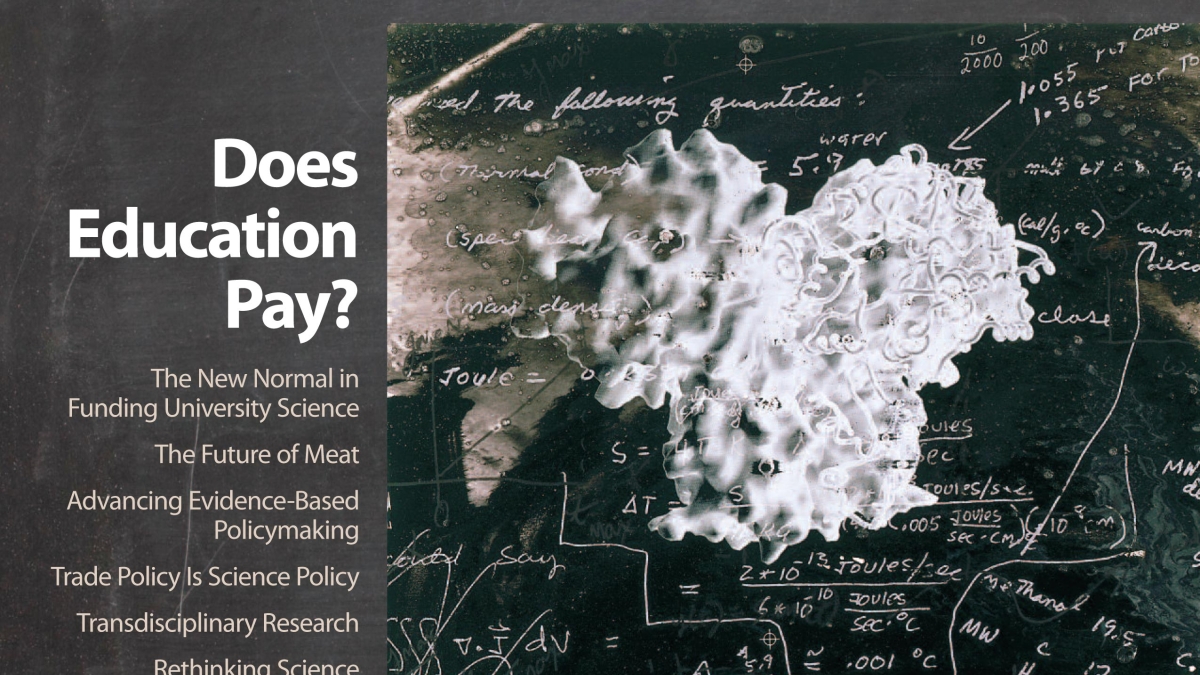ASU, National Academies turn up the volume on science policy discussion

To say that science and technology play an important role in our lives is a bit of an understatement. But science policy, which relates to everything from the creation of new jobs to the prevention of disease to dealing with global warming, gets only lip service inside the Washington, D.C. beltway and not much more from those outside the beltway, according to Daniel Sarewitz, co-director of ASU's Consortium for Science & Policy Outcomes and professor of science and society at Arizona State University.
Sarewitz aims to help change that, as ASU and the U.S. National Academies are set to co-produce and co-publish the quarterly magazine Issues in Science and Technology.
The magazine broadly covers the policy of science (how to keep a research enterprise healthy and productive) and science for policy (how we use knowledge and innovation effectively to achieve social goals). Issues in Science and Technology includes a frequently updated online presence and boasts an international audience of decision-makers and thinkers in universities, government and industry.
“Problems of science, technology, society and policy are crucial to the nation and the world, yet they don’t get much attention, which is incredible considering how important they are for every aspect of our lives,” Sarewitz said. “We want to create a more compelling voice, heard inside and outside the beltway, about the challenges of using scientific and technological advances to make the world a better place.”
“We will be publishing really interesting, well-written, provocative articles about questions of science, technology, society and policy, articles that will continue to expand the audience for Issues in Science and Technology,” he added. “We want everyone who is concerned about the future to recognize why these questions should be at the forefront of their attention.”
For Sarewitz, the time is ripe for such a thrust, given the many and major issues we confront today, ranging from global climate change and slow job growth to the risks and benefits of emerging technologies, and the rising cost of high-tech health care.
Sarewitz begins his co-editorship with the fall issue of Issues in Science and Technology, which is available on newsstands now. Among articles in the fall issue is one on factory meat – meat created in the lab and not on the traditional farms, ranches and feedlots – and what the new technology will portend for the future. A second article discusses how research universities should rethink the way they fund faculty and support their research enterprises when federal support continues to be very tight and highly competitive.
Sarewitz said a redesign of the magazine and a revamping of its on-line content is in the works. The National Academies, which includes the National Academy of Science, the National Academy of Engineering and the Institute of Medicine, has published Issues in Science and Technology since 1984.
Sarewitz said as part of the new relationship, the magazine will be offered to ASU personnel at a reduced subscription rate of $21 per year. More information is available here.
He added that this new partnership will bolster ASU’s presence in D.C. and “adds to our existing ‘Future Tense’ partnerships with Slate and New America Foundation around improving public discussions about science, technology and society, and continues to build on ASU’s capacity to move its scholarly ideas into policy debates. These partnerships are also leading to expanding networks that can benefit ASU grads who are interested in policy work.”